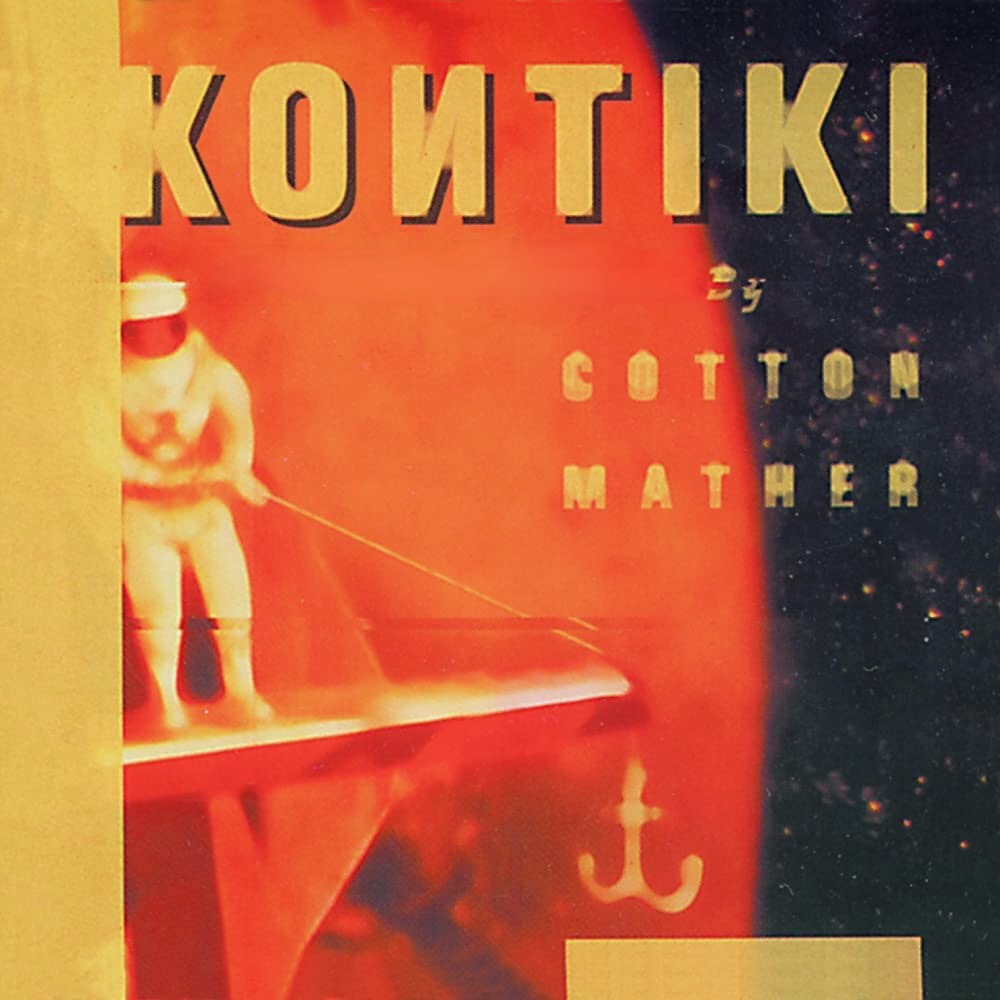Cotton Mather’s Robert Harrison gets brownie points for ambition. Death Of The Cool (The Star Apple Kingdom) comprises 11 of the 64 songs he’s been writing in an extended fit of creativity inspired by the I Ching, the ancient Chinese divination text—one tune per hexagram (or reading). Seriously. Harrison will be guest editing magnetmagazine.com all week.

Harrison: By the time we embarked on the Kontiki sessions, Whit Williams and I had logged in so many hours playing and singing together—meeting four or five times a week—that we’d really honed in on our sound as a guitar/vocal duo. We’d found our voices as players and singers. And it was thrilling to not be seeking the approval of an outside party, because after our first disastrous outing we’d pretty much sworn off following the advice of anyone who we considered to be a part of the music industry. We were recording in a little house in the country with a four-track cassette deck and a rickety ADAT player, working on the weekends, capturing the drums typically with one mic. We recorded all of our guitars with an SM 57. If we liked the feeling of what we did, we kept it and moved on. My guitar is more propulsive, careening, punchy and wild, more informed by a punk-rock ethos, while his is precise, languid and able to do all sorts of guitar-hero stuff that I could never. So those contrasting styles became the push/pull engine that drove Cotton Mather. When we added Dana Myzer and George Reiff, who had played together as a rhythm section in countless configurations, we had a potent band. I distinctly recall putting the mic in front of a little blackface Princeton amp we had out in the country and hearing through the monitors the sound of Whit’s guitar on “Homefront Cameo” while he was warming up and realizing we were onto something incredibly cool. And that he was going to make me sound a lot more skilled as an engineer that I actually was. The tone just cut through the track effortlessly. Recording our own guitars became a relaxed and natural process.
People often ask me how I can live up to the expectations that followed me after Kontiki—and it puzzles me because artists can’t afford to think that way. I’m glad Kontiki means so much to some that they feel it’s difficult to surpass. I also think it’s possible to fall so in love with a record as a listener that you become close-minded about what you want from that artist in the future. I think: Well give us a little credit. It wasn’t a fluke. Listen to more and you might get surprised. I’m always far more interested in what’s happening now. I’m not the guy who made that record anymore. That was 17 years ago, and I was going through an entirely different phase of my life. Kontiki does possess a uniquely ecstatic quality. I’d been changed by life events and just as importantly, artistically freed of any expectations because everything had already been broken. That time marked magical intersections for all of us. It was the peak of George’s musical connection with Dana and a breakthrough between myself and Whit, as I mentioned. It’s also the first time I’d engineered and produced anything and I made choices I could never make today because now I know too much. The recording is very naive and visceral. I was flying blind, going purely on intuition, and occasionally following producer Dave McNair’s sage advice to me which was, “Just make sure lots of lights are blinking because that’s how you know something cool is happening!”
I don’t really listen back to my records, but I had to revisit Kontiki when we released the bonus material a few years ago. I was pleasantly surprised by how fresh and exciting it still sounded. I personally consider the eponymous Future Clouds And Radar release more of an achievement because it had to sustain a comparable level of artistry over two records, and it’s a lot more complex. And now I’m onto this I Ching project and hoping I can pull it off. That’s what happens when you get older and want to explore new frontiers. Kontiki is like an old photo album. Looking back at it has limited interest and meaning for me, but I like it.






